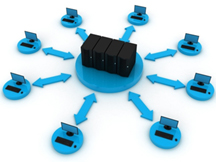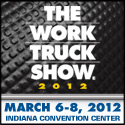
| Monday, November 07, 2011 1st mailing | Archives | Advertise | Online Buyer's Guide | FLEETSolutions |
Ford Demonstrates Smart Electrification Technology That Can Adapt To Sustainability Programs
 Ford Motor Company continues its research into how cloud-based technology can make vehicles smarter during the 18th World Congress on Intelligent Transport Systems. Ford Motor Company continues its research into how cloud-based technology can make vehicles smarter during the 18th World Congress on Intelligent Transport Systems.The company's Executive Chairman Bill Ford was a featured conference speaker and talked about the future of transportation, emphasizing how intelligent vehicles and innovations such as smart electrification can help solve emerging transportation issues on roads around the world. Researchers and engineers from the company also showcased technology designed to personalize the driving experience that is centered on three areas of cloud-based innovation: intelligent routing, intelligent driving, and intelligent operation. "As our transportation system evolves the research we are doing now will help us meet the future needs of our customers. For example, cars could one day adapt their powertrain performance to these types of varying driving conditions," said Paul Mascarenas, Chief Technical Officer and Vice President, Ford Research and Innovation. At the Google I/O conference in May, the company introduced its research into using the cloud to predict driver behavior in order to optimize vehicle control systems and improve vehicle performance attributes such as fuel or hybrid-electric efficiency. The Ford Evos Concept was introduced at the 2011 Frankfurt Motor Show in September. The Evos Concept explores the potential for connecting a vehicle to the cloud in order to tailor the driving experience based on variables such as personal tastes and moods of the driver. "Ford already offers cloud-based services through Ford SYNC, but those services thus far have been used for infotainment, navigation, and real-time traffic purposes," said Ryan McGee, Technical Expert, Vehicle Controls Architecture and Algorithm Design, Ford Research and Innovation. For example, researchers showed how a prototype Escape Plug-In Hybrid (PHEV) could use a combination of cloud-based and proprietary technology to learn when to switch from being gasoline-powered to all-electric upon entering a lower emissions zone. Cities such as London, Berlin, and Stockholm already have such zones. McGee said if a vehicle was able to predict exactly when it might be entering such a zone, it could optimize itself to comply with regulations and at the same time optimize energy usage over the total distance of the route by switching the engine to all-electric mode at specific times. Work is now under way to study the feasibility of incorporating variables such as driver style and habits into the optimization process, so the company can further enhance vehicle control systems and allow car and driver to work together to maximize energy efficiency. |
 |
NAFA Fleet Management Association 125 Village Blvd., Suite 200 Princeton, NJ 08540 Telephone: 609.720.0882 Fax: 609.452.8004 |








